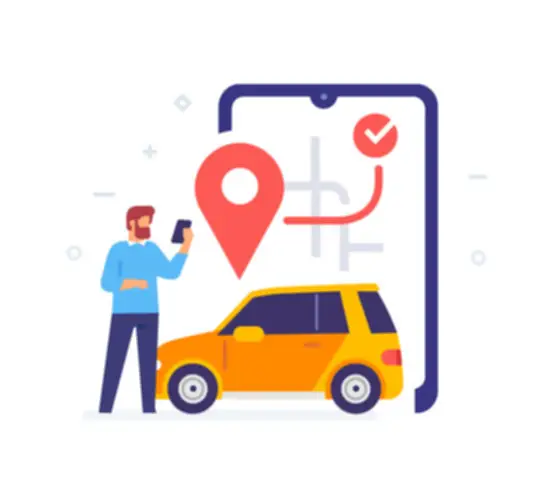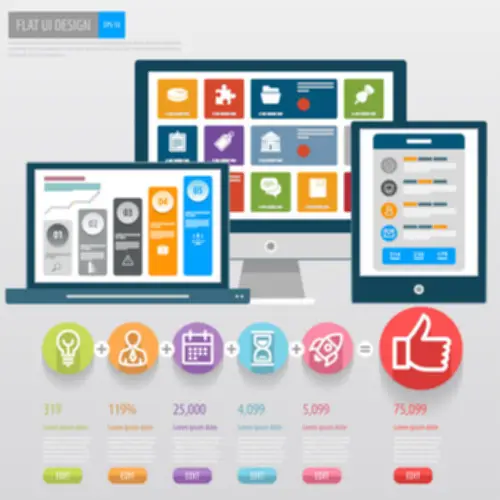Putting a stability between protecting privateness and fostering innovation could be ethical use of data challenging. Moral considerations could limit the use of data for developing new technologies and providers, requiring cautious analysis to keep away from stifling innovation while defending individual rights. Dive into our curated list of the highest choices and set yourself apart within the subject. This course supplies an excellent alternative to explore generative AI and get hands-on with how information analytics works with AI. You should additionally provide the option for users to decide in the occasion that they want to synchronize their knowledge across all the units, share it amongst totally different websites, or limit it to a specific system.
Privateness Safety #
Moral data management entails aligning information practices with societal values and prioritising the widespread good over individual interests or organisational targets. Transparency builds confidence in knowledge processes and ensures accountability for the results of data-driven choices. It’s critical to grasp the guiding principles behind the ethics of data assortment and use, in addition to data’s significance in contemporary society. Indeed, company boards and audit committees can provide the checks wanted to ensure that knowledge ethics are being upheld, regardless of conflicting incentives.
In the first place, what is the definition of ‘benefits’ arising from the utilization of data? These discussions have been postponed till COP16 in Cali, Columbia, and the dialogue remains to be ongoing. During the 2 years following the COP15 choice, the CBD Secretariat organized an Informal Advisory Group led by academia to assemble a variety of opinions and attempted to delineate issues.
This entails leadership commitment, common communication concerning the significance of information ethics, and creating an surroundings the place ethical practices are inspired and rewarded. Now that we all know the benefits and pitfalls of data ethics let’s evaluate some greatest practices you should observe to make sure the proper implementation of knowledge ethics in your processes. Several governments worldwide have established rules that corporations must comply with. An efficient information ethics coverage must ensure the organization complies with the rules. This ensures that no inherent bias exists in the https://www.globalcloudteam.com/ fashions used for the analysis and prevents deliberate makes an attempt to disregard selective knowledge. Equal therapy of the out there data ensures an applicable decision-making course of.

Book your customized demo at present to learn the way Atlan might help your group in establishing and scaling data governance programs. Knowledge ethics is anxious with ethical obligations and points related to personally identifiable info (PII) and its potential impacts on individuals and society at massive. Earlier Than amassing knowledge, ask yourself why you need it, what you’ll gain from it, and what adjustments you’ll be ready to make after analysis.
This will decrease the efforts required in information assortment, analysis, and storage. This additionally reduces the pressure on the customers to complete all the data asked for in the information varieties. For example, an email handle is typically a norm, however a cellphone number or handle may not all the time be required.
Assortment #
For people, understanding data ethics empowers us to make informed decisions about our private data and to carry organizations accountable for their data practices. It allows us to reap the benefits of data-driven technologies while protecting our elementary rights and values. As we’ve noted, compliance teams and authorized counsel should not be the only folks serious about a company’s information ethics, however they do have an important function to play in ensuring that data ethics applications succeed. Legal consultants are greatest positioned to advise on how your organization should apply existing and emerging regulations.

Knowledge ethics refers again to the principles, standards, and pointers that govern the accountable assortment, use, and management of knowledge. There are moral, legal, and governance challenges surrounding knowledge, notably in the context of digital sequence data (DSI) on genetic sources. I concentrate on the shift within the international framework, as exemplified by the CBD-COP15 decision on benefit-sharing from DSI and talk about the rising significance of data sovereignty within the age of AI and artificial biology. Utilizing the instance of the COVID-19 pandemic, the strain between open science ideas and data control rights is explained. One of the most secure dataset preparation strategies entails creating unique content material, such as filming people in managed environments like studios or outdoor locations.
The 5Cs of knowledge ethics are a framework that helps information ethical considerations and decision-making in phrases of handling and using information. These 5 principles present a structured method to make certain that information is utilized in a accountable and moral manner. Information ethics refers to the moral ideas and guidelines that govern the collection, storage and analysis of knowledge. It features a broad vary of issues, including privacy, consent, transparency, equity, and accountability. Data ethics refers to the rules and frameworks that govern the responsible assortment, processing, and use of information, guaranteeing privacy, safety, equity, transparency, and accountability.
If your intention is to hurt others, revenue out of your subjects’ weaknesses, or any other malicious objective, it’s not moral to collect their knowledge. One Other ethical duty that comes with dealing with data is guaranteeing data subjects’ privacy. Even if a buyer gives your organization consent to collect, retailer, and analyze their personally identifiable info (PII), that doesn’t imply they need it publicly out there. To protect knowledge apart from personal info, patent rights and copyrights have been put in traditionally. Information is often not copyrighted, however in some international locations, databases and laptop programs can turn into copyrighted or patented, as was mentioned in World Mental Property Group (WIPO website). In common, it has been troublesome to imagine that such rights can be claimed for nature-derived data which does not contain human intervention, similar to genome sequences.
As data becomes a more integral part of human existence and decision-making processes, understanding its moral implications turns into paramount. All individuals have to be at least 18 years of age, proficient in English, and dedicated to learning and interesting with fellow participants throughout the program. In addition to owning their private info, knowledge topics have a right to understand how you propose to gather, retailer, and use it. For instance, your company might acquire and retailer information about customers’ journeys from the primary time they submit their email handle on your website to the fifth time they purchase software quality assurance (QA) analyst your product. COP15, which marks 10 years since the COP10 in Nagoya, was originally scheduled to be held in Kunming, China in 2020.

Mishandling knowledge can lead to serious reputational injury, monetary costs and loss in client trust. Examples of information misuse embrace selling knowledge sets with out consent, creating biased knowledge sets, and not defending information adequately to stop breaches. Data privacy includes the handling and safety of personal information to ensure it is not misused or accessed without permission, and that the relevant ethical issues have been observed. In response to rising concerns, Australia has taken steps to strengthen data governance and promote ethical data practices. Initiatives corresponding to Shopper Data Proper (CDR) purpose to empower people with larger control over their knowledge and facilitate information sharing in regulated sectors, similar to banking and telecommunications. The consequences of unethical data practices could be profound, posing dangers to individuals, organisations and society.
- Attempt to gather the minimum viable quantity of knowledge, so you’re taking as little as potential from your subjects while making a difference.
- Data ethics constitute a foundational pillar of accountable information governance, encompassing rules of transparency, equity, privateness, consent and accountability.
- It encompasses a broad vary of moral considerations surrounding the collection, analysis, and utility of information.
- The 5Cs of knowledge ethics are a framework that helps guide ethical considerations and decision-making in relation to dealing with and utilizing information.
- By doing so, you possibly can defend your customers’ safety and save your organization from authorized points.
The major downside of this methodology is its value, especially when information is created for edge instances or large-scale projects. Nonetheless, large firms and enterprises are increasingly continuing to use this approach for a minimum of two causes. Second, it provides firms with data fully tailored to their specific situations and desires, guaranteeing the highest accuracy in mannequin training. Recognizing the excellence between these two areas permits for a extra nuanced method to ethical know-how growth. It ensures that as we forge ahead into a future formed by advanced technologies, we accomplish that with a commitment to upholding ethical standards that shield individuals’ rights and promote societal well-being.
In the movement of open science, the discussion on knowledge management has been centered around privateness. In addition to this, we now want to consider the rights of sovereign states for nature-derived DSI. The elementary reason for this shift is that the traditional understanding of open information and sharing could trigger friction not only with the principles of privacy, but also with the rules of inclusion and variety. To obtain equitable benefit sharing from knowledge, advanced infrastructure, expertise, and knowledge have to be all shared. This is why many growing nations cooperated with the GISAID repository, which didn’t allow open knowledge through the SARS-CoV‑2 pandemic, opposing the framework of unrestricted information entry that developed countries advocated.
Regardless Of this discrepancy, it is vital that you just take each senses of fairness seriously when processing data, from moral knowledge collection, to knowledge analysis. Finally, it helps to ensure that appropriately robust consent mechanisms are in place, aligning with legal requirements for amassing and utilizing personal information. Guaranteeing knowledge subjects’ privacy is an moral accountability, and data ought to be stored in a secure database utilizing knowledge security methods.